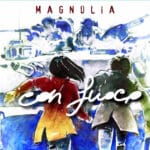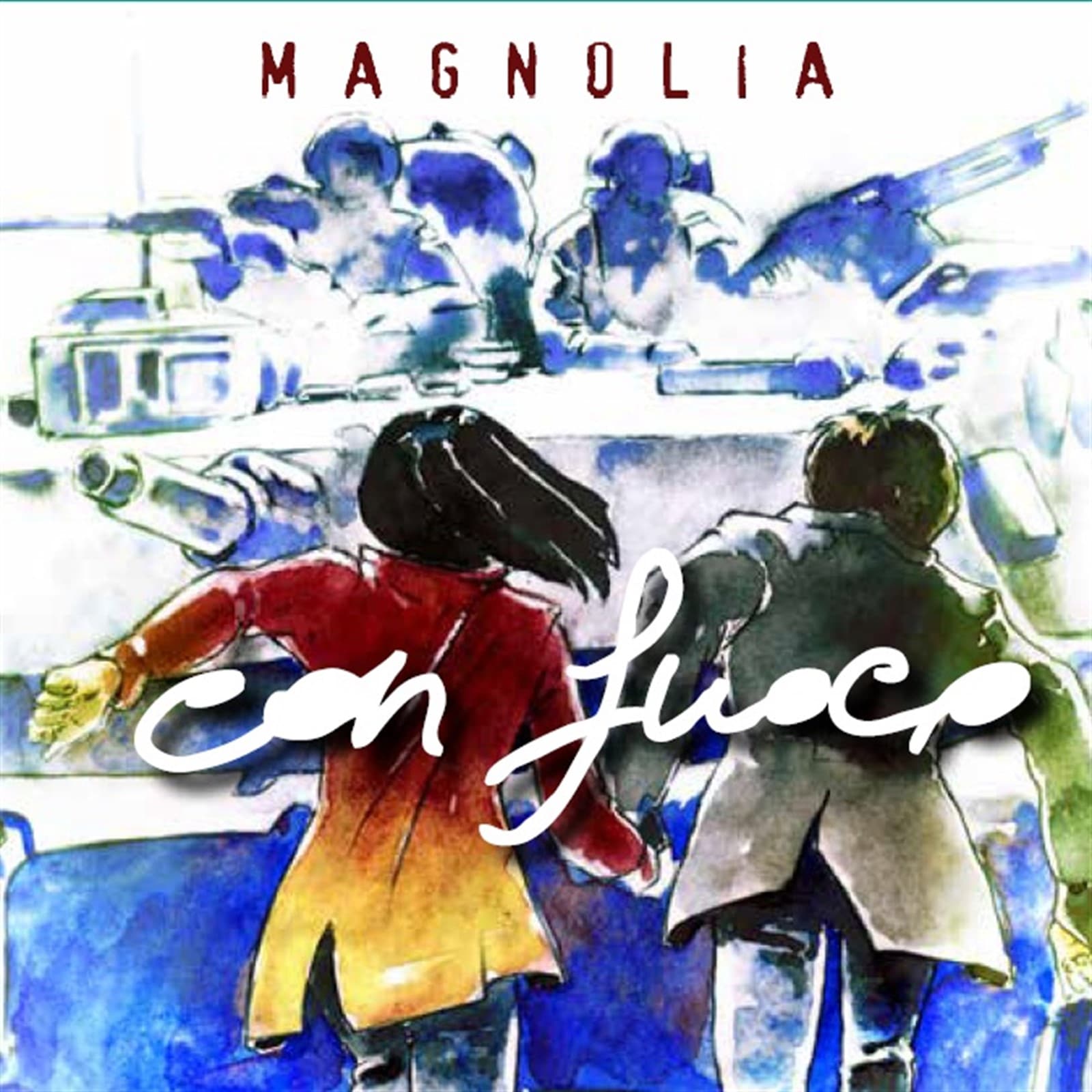Magnolia is back… with fire. Five years after “La Zona d’Ombra”, the band released Con Fuoco (With fire).
While Con Fuoco is not a concept album there is nonetheless a thin red line that goes through all the tracks and connects them to a shared theme: resistance against oppressive regimes, past and present.
The album opens with the title track, an instrumental with clear hard rock influences. After the opener the album takes a faster pace and an angry, fighting stance with songs like Rivolta (Revolt), inspired by early 21st century No-Global movements and their struggles and Gea that envisions the rebellion of the cradle of Western culture against the speculations of the latest years. Anger subsides into melancholy in Syrma, inspired by the desaparecidos and the Latin America dictatorships. Syrma is the album’s first long track and probably the most “progressive”, with repeated and sudden tempo changes and melodic, mellower arpeggios dueting with explosive, powerful instrumental sections. The same alternance between slower, mellower passages and frantic, hectic ones is found in Terre di mezzo (Lands in-between), the second long track dedicated to the tragic, unending war between Israel and Palestine, featuring an orchestra finale that is beyond doubt one of the peaks of the whole album.
Con Fuoco’s final track is a 3 part suite which is actually one of the band’s first work dating back to the late 90s: Luna del viandante (The Wanderer’s moon), an intimate and personal track that represets at the same time a departure from the rest of the album and a trip back to the dreamlike, outside-time-and-space atmospheres which are a trademark of Magnolia, atmospheres that enhance and bring at the forefront the crystal clear, poetic and, in this track, stunningly poignant and intense voice of the vocalist.
Once again Magnolia have demonstrated that they walk their own path, far away from traditional labels and genres: a band with Italian lyrics engulfed in a typical British sound, a band that combines a Wilson-esque “kaleidoscope” sound with deeply emotional and socially oriented lyrics akin to some works by Fabrizio De André. In short, a mix that we could call “combat prog.”
***
A distanza di 5 anni dal precedente lavoro, La Zona d’Ombra, la band romana Magnolia pubblica il suo secondo album, Con Fuoco. Anche se non ci troviamo di fronte ad un concept album c’è una sottile linea rossa che lega il tutto, ed è quella della resistenza ai regimi del passato e del presente, dove quelli del passato usavano i soldati e le armi mentre quelli odierni prediligono l’uso della finanza e dello sfruttamento dei più poveri. L’album parte con la title track strumentale con sonorità molto vicino all’hard rock e, per buona metà, si muove su ritmi molto serrati e rabbiosi, con canzoni come Rivolta (ispirata ai movimenti no-global degli anni 2000), Città della notte (ispirata ai fatti del G8 di Genova) e Gea, che descrive una ipotetica ribellione della madre della cultura alle moderne speculazioni; alla rabbia poi subentra la malinconia e la speranza di Syrma, il primo brano lungo dell’album, ispirato ai regimi dell’America Latina degli anni 70 e ai desaparecidos; Syrma è forse il brano più progressive dell’album, con continui cambi di tempo e di atmosfera, arpeggi melodici alternati ad esplosioni strumentali. Stasi è ispirata alla guerra fredda, e i Magnolia, che sono quasi tutti appassionati di cinema, omaggiano il film “Le vite degli altri”. Atmosfere serrate di nuovo alternate a quelle melodiche si ritrovano in Terre di Mezzo, secondo brano lungo, dove il’eterna guerra tra Israele e Palestina e dove le vittime maggiori sono proprio tutte quelle che sognano la pace; il finale orchestrale rimane uno dei punti più alti dell’album dove ogni strumento traccia la sua melodia. L’album si chiude con una suite in 3 parti, uno dei primi brani scritti dalla band tantissimi anni fa. Luna del Viandante è un brano intimo, che si scosta dal resto dell’album, che si muove tra le atmosfere oniriche e sognanti che hanno sempre contraddistinto la band e che mette in risalto la voce limpida e in questo caso struggente della vocalist. Per chiudere: i Magnolia viaggiano anche con questo album lontano dalle etichette e dai generi musicali, rimanendo un gruppo che canta in italiano ma con un sound britannico, tendendo a mischiare sonorità “kaleidoscope” di Wilson e company con testi di emotività sociale alla De Andrè. Insomma, un moderno combact-prog.




